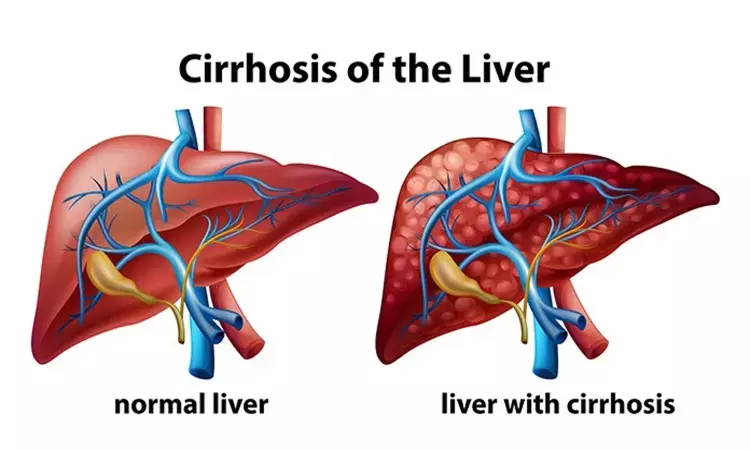- Home
- Medical news & Guidelines
- Anesthesiology
- Cardiology and CTVS
- Critical Care
- Dentistry
- Dermatology
- Diabetes and Endocrinology
- ENT
- Gastroenterology
- Medicine
- Nephrology
- Neurology
- Obstretics-Gynaecology
- Oncology
- Ophthalmology
- Orthopaedics
- Pediatrics-Neonatology
- Psychiatry
- Pulmonology
- Radiology
- Surgery
- Urology
- Laboratory Medicine
- Diet
- Nursing
- Paramedical
- Physiotherapy
- Health news
- Fact Check
- Bone Health Fact Check
- Brain Health Fact Check
- Cancer Related Fact Check
- Child Care Fact Check
- Dental and oral health fact check
- Diabetes and metabolic health fact check
- Diet and Nutrition Fact Check
- Eye and ENT Care Fact Check
- Fitness fact check
- Gut health fact check
- Heart health fact check
- Kidney health fact check
- Medical education fact check
- Men's health fact check
- Respiratory fact check
- Skin and hair care fact check
- Vaccine and Immunization fact check
- Women's health fact check
- AYUSH
- State News
- Andaman and Nicobar Islands
- Andhra Pradesh
- Arunachal Pradesh
- Assam
- Bihar
- Chandigarh
- Chattisgarh
- Dadra and Nagar Haveli
- Daman and Diu
- Delhi
- Goa
- Gujarat
- Haryana
- Himachal Pradesh
- Jammu & Kashmir
- Jharkhand
- Karnataka
- Kerala
- Ladakh
- Lakshadweep
- Madhya Pradesh
- Maharashtra
- Manipur
- Meghalaya
- Mizoram
- Nagaland
- Odisha
- Puducherry
- Punjab
- Rajasthan
- Sikkim
- Tamil Nadu
- Telangana
- Tripura
- Uttar Pradesh
- Uttrakhand
- West Bengal
- Medical Education
- Industry
Metformin and SGLT2 inhibitor combo may increase survival in diabetes patients with cirrhosis

USA: Dual treatment with metformin and SGLT2 inhibitor reduced hepatic complications and improved survival in type 2 diabetes (T2D) patients with cirrhosis, a recent study published in BMC Gastroenterology has shown.
"Those on dual metformin and SGLT2 inhibitor therapy had a reduced risk for mortality (HR 0.57), less than half the risk for developing hepatocellular carcinoma (HR 0.43), and reduced composite risk of becoming decompensated (HR 0.63), compared to those on mono metformin therapy," the researchers reported.
Metformin is a standard initial treatment for T2D, though some patients require additional glucose-lowering agents due to disease progression. Sodium-glucose cotransporter-2 inhibitors (SGLT2-I) have been recommended as part of stepwise combination therapy for T2D patients with established heart failure (HF), atherosclerotic cardiovascular disease (ASCVD), kidney disease, or those at risk for cardiorenal comorbidities. Newer guidelines now recommend using SGLT2 inhibitors as part of a first-line glucose-lowering regimen in consideration of person-specific factors.
There is a lack of evidence for dual antidiabetic therapy in type 2 diabetes mellitus patients with cirrhosis. Daniel S Jamorabo, Health Sciences Center, Stony Brook, NY, USA, and colleagues aimed to determine whether patients with cirrhosis and type 2 diabetes had a mortality benefit and reduced risk for complications such as decompensation and HCC when on dual therapy with metformin and an SGLT2-I versus on metformin alone.
In the retrospective study, the researchers used the TriNetX Research Network to identify propensity score-matched patients treated with either metformin or dual metformin and SGLT2-I therapy. The outcomes included all-cause mortality, a composite of hepatic decompensation events, and hepatocellular carcinoma occurrence over five years.
Hazard ratios were estimated within each cohort and Kaplan-Meier estimates for time-to-event distributions with Log-rank tests. The cohorts were stratified by sex, age, race and ethnicity. A subset of diabetic patients with cirrhosis due to MASH (metabolic dysfunction-associated steatohepatitis) were further investigated.
The researchers reported the following findings:
· In the propensity score-matched cohorts of type 2 diabetes patients with cirrhosis, those on dual metformin and SGLT2-I therapy had reduced risk for mortality (HR 0.57), reduced composite risk of becoming decompensated (HR 0.63) and less than half the risk for developing HCC (HR 0.43) compared to those on mono metformin therapy.
· No difference was found between mono or dual therapy treatment for mortality, decompensation, or HCC risks in the subset of patients with MASH cirrhosis.
"Our study suggests a role for SGLT2 inhibitor in a setting of diabetes and cirrhosis," the researchers wrote. "We showed an associated mortality benefit and a possible benefit in reducing cirrhosis complications in T2D patients with cirrhosis on dual metformin and SGLT2-I compared to metformin monotherapy."
The researchers added, "Dual treatment, however, failed to reduce mortality, decompensated cirrhosis, or HCC incidence in the MASH cirrhosis subset."
"We look forward to prospective studies that can clarify the role of SGLT2 inhibitor in this population," they concluded.
Reference:
Huynh, D.J., Renelus, B.D. & Jamorabo, D.S. Reduced mortality and morbidity associated with metformin and SGLT2 inhibitor therapy in patients with type 2 diabetes mellitus and cirrhosis. BMC Gastroenterol 23, 450 (2023). https://doi.org/10.1186/s12876-023-03085-8
Dr Kamal Kant Kohli-MBBS, DTCD- a chest specialist with more than 30 years of practice and a flair for writing clinical articles, Dr Kamal Kant Kohli joined Medical Dialogues as a Chief Editor of Medical News. Besides writing articles, as an editor, he proofreads and verifies all the medical content published on Medical Dialogues including those coming from journals, studies,medical conferences,guidelines etc. Email: drkohli@medicaldialogues.in. Contact no. 011-43720751


